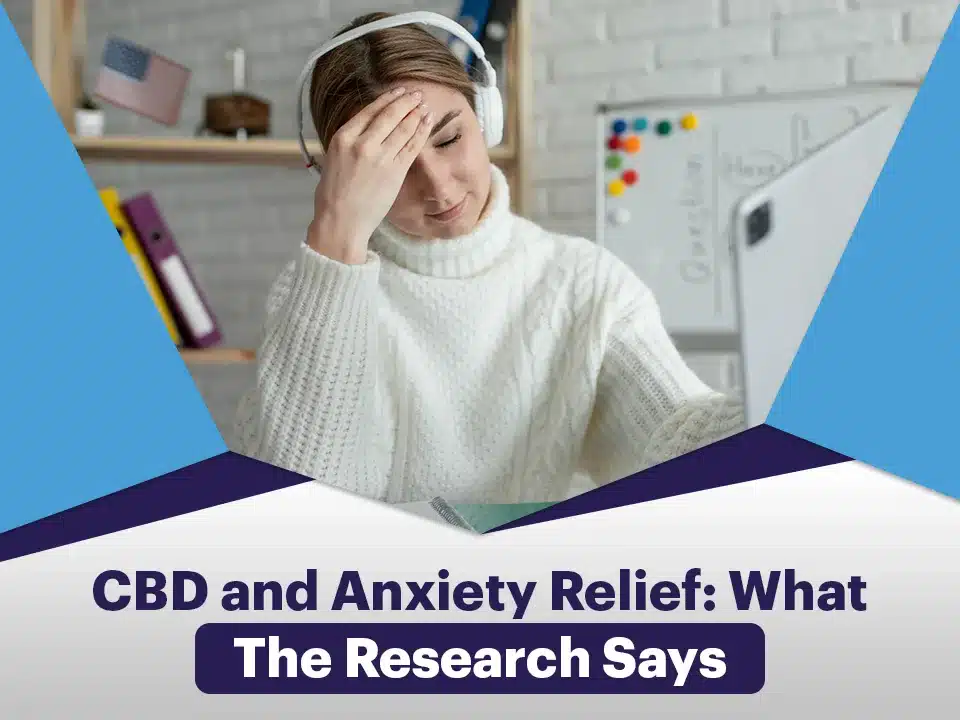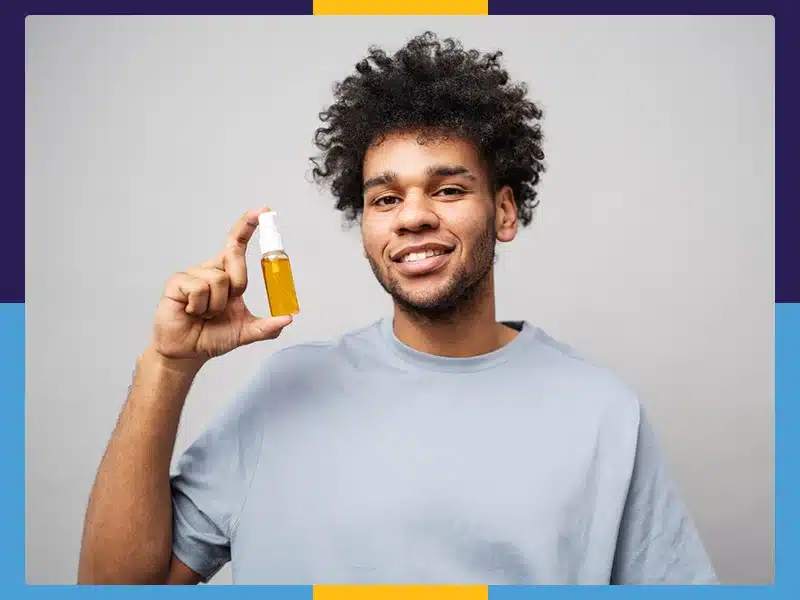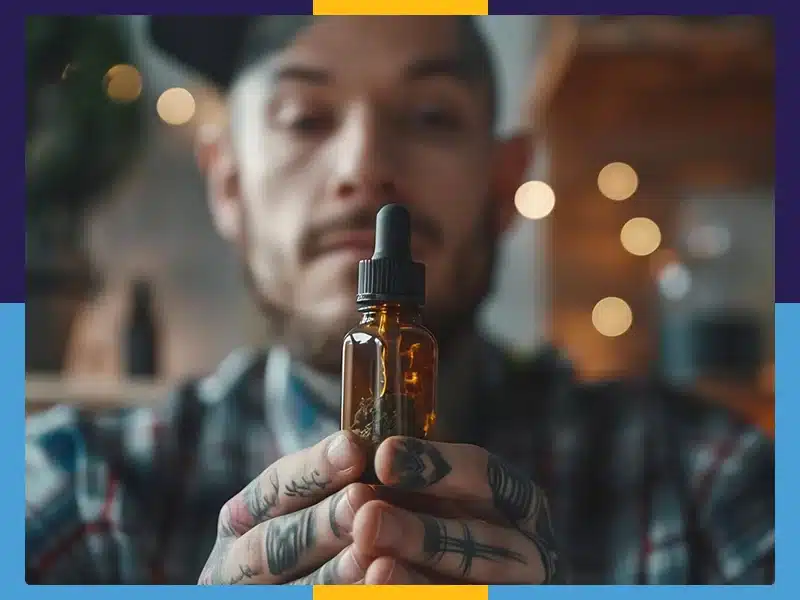
Introduction: The Rising Interest in CBD for Anxiety Relief
In today’s fast-paced world, where anxiety levels are at an all-time high, many are searching for effective and natural treatment options. Cannabidiol (CBD), a non-psychoactive compound derived from the cannabis plant, has quickly risen to prominence, offering a beacon of hope for many. Unlike its counterpart, tetrahydrocannabinol (THC), CBD does not induce a high, making it an attractive option for those seeking relief without altering their mental state. This blog explores the scientific underpinnings of CBD’s effectiveness in reducing anxiety, focusing on its potential to modify brain chemistry and induce a sense of calm and stability.
The growing body of research suggests that CBD may play a transformative role in mental health management, particularly in anxiety reduction. This guide delves deeper into the mechanisms through which CBD operates, backed by scientific studies and expert opinions. It also offers practical advice for individuals considering incorporating CBD into their anxiety management regimen, ensuring an informed and thoughtful approach to its use. By understanding CBD’s interaction with the body’s endocannabinoid system and its potential effects on various neurotransmitter systems, this article aims to provide a comprehensive overview of why CBD has become a favored choice in the natural management of anxiety.
What is CBD?
Cannabidiol, commonly known as CBD, is a prominent cannabinoid among the over one hundred cannabinoids found in the cannabis plant. Unlike tetrahydrocannabinol (THC), the well-known psychoactive component of cannabis, CBD does not produce intoxicating effects, making it a highly appealing option for those seeking the therapeutic benefits of cannabis without the associated high.
CBD’s ability to offer relief from a variety of symptoms and conditions—ranging from anxiety and chronic pain to epilepsy and inflammation—is fundamentally linked to its interaction with the body’s endocannabinoid system (ECS). The ECS is a complex network of receptors and neurotransmitters that play a critical role in maintaining bodily homeostasis—it regulates a broad range of biological functions, including pain sensation, immune response, mood, memory, appetite, and sleep. By influencing this system, CBD can help stabilize these crucial functions, potentially addressing underlying issues that contribute to disorders like anxiety without the side effects typically associated with conventional medications.
This interaction primarily involves CBD’s ability to modulate the ECS receptors, particularly the CB1 and CB2 receptors, distributed throughout the body and central nervous system. Additionally, CBD may enhance the body’s natural levels of endocannabinoids by inhibiting their breakdown. This action helps prolong and strengthen their positive effects on mood, pain, and other functions. Thus, CBD’s multifaceted engagement with the ECS explains its wide-ranging health benefits and underscores its potential as a powerful natural therapeutic agent.
The Connection Between CBD and Anxiety Relief

CBD’s effectiveness in managing anxiety is rooted in its complex interactions with the body’s neurological systems. Here’s a deeper look into how CBD facilitates anxiety relief:
Neurological Interactions
CBD’s ability to interact with the brain’s cannabinoid and serotonin receptors is central to its anxiety-reducing properties. The CB1 receptors, primarily found in the brain, are part of the endocannabinoid system, which regulates mood, appetite, pain sensation, and memory. CBD doesn’t directly bind to these receptors like THC but influences them in ways that can modify neurotransmitter release, thereby stabilizing mood and reducing anxiety.
Moreover, CBD also interacts with serotonin receptors, particularly the 5-HT1A receptor, pivotal in serotonin neurotransmission. Serotonin is a neurotransmitter known for its significant role in feelings of well-being and happiness. By influencing these receptors, CBD can help enhance serotonin signals, which can be beneficial for those whose anxiety is linked to low serotonin levels, a common issue in depression and anxiety disorders.
Stress Reduction
CBD’s modulation of the endocannabinoid system also plays a critical role in how the body responds to stress. By enhancing the ECS’s ability to regulate anxiety and the fight-or-flight response, CBD can promote a more stable emotional state, thereby increasing resilience to stress. This regulatory action helps mitigate the physiological and emotional impacts of stress, potentially decreasing the occurrence and severity of anxiety episodes.
Safety and Tolerance
One of the most compelling reasons for the increasing turn to CBD for anxiety relief is its safety profile. Research and clinical studies have generally found that CBD is well-tolerated by the human body, exhibiting fewer and less severe side effects compared to many traditional anxiety medications, such as benzodiazepines and SSRIs, which can cause sedation, dependency, or other significant side effects.
Most common side effects associated with CBD are relatively minor and include fatigue, changes in appetite, and diarrhea, typically only appearing at very high dosages. This favorable safety profile makes CBD an attractive alternative or complementary therapy for managing anxiety, providing a less intrusive option for those wary of the heavier side effects associated with conventional treatments.
Through these mechanisms, CBD offers a holistic approach to anxiety management, addressing both the physiological and psychological aspects of the condition. Its ability to interact with crucial brain receptors and modulate the body’s stress response makes it a potentially powerful tool in the ongoing battle against anxiety disorders.
Reviewing the Research: What Studies Say
Clinical Trials
A wealth of clinical trials has begun to highlight the potential benefits of CBD in managing anxiety. Among the most cited is a 2019 study that specifically looked at the impact of CBD on 72 adults suffering from anxiety and sleep issues. Remarkably, within just one month of CBD treatment, 79% of the participants reported a significant decrease in anxiety levels, which was sustained throughout the course of the study. This and similar studies provide compelling evidence of CBD’s potential as an effective therapeutic option for anxiety.
Further clinical research includes a 2021 study where CBD was shown to reduce anxiety induced by simulated public speaking. Participants who received CBD experienced significantly less anxiety, cognitive impairment, and discomfort in their speech performance compared to those who received a placebo. These studies underline the potential of CBD to assist not only in chronic anxiety conditions but also in acute anxiety episodes like public speaking.
Longitudinal Studies
Long-term studies on the effects of CBD also contribute valuable insights into its potential for chronic anxiety management. These studies have consistently shown that CBD maintains its effectiveness in reducing anxiety over extended periods of use. Importantly, these studies also note that CBD does not lead to tolerance build-up, a significant advantage over traditional anxiolytics, which can lose their efficacy over time and lead to increased dosage requirements.
Moreover, longitudinal research underscores the lack of significant side effects associated with long-term CBD use. This aspect is particularly critical in chronic conditions where long-term treatment is necessary, making CBD a safer alternative to many pharmaceutical options, which can pose more serious health risks over time.
The Broader Impact of Research
The growing body of research into CBD and anxiety is paving the way for more targeted therapies that can address various forms of anxiety, from generalized anxiety disorder (GAD) to panic disorders and PTSD. Each study not only contributes to a deeper understanding of how CBD can be utilized to combat anxiety but also helps in refining dosage, delivery methods, and treatment regimens that maximize benefits for patients.
Current research consistently reinforces the safety and efficacy of CBD, helping to shift public and scientific opinion towards more natural therapeutic options. This shift is crucial for developing integrative treatment approaches prioritizing patient safety and quality of life.
Dosage and Administration: How Much CBD for Anxiety?

When it comes to managing anxiety with CBD, determining the right dosage is crucial but can be challenging due to the personal nature of both anxiety symptoms and how individuals respond to CBD. Here are some guidelines to help establish an effective regimen:
Starting Low and Going Slow
The general recommendation for beginning CBD use is to start with a small dose. For anxiety, this might mean beginning with as little as 10-20 mg per day, depending on the concentration of the product and individual body weight. Gradually increasing the dosage allows the user to monitor the effects and adjust accordingly, minimizing potential side effects.
Incremental Adjustments
If the initial low dose does not meet the desired effects after about a week, it can be slowly increased. Many find that a dose in the range of 20-40 mg daily can be effective for mild to moderate anxiety. Taking these incremental steps is important to find a dose that provides the optimal balance between therapeutic effects and minimal side effects.
Consistency Is Key
Maintaining a consistent schedule for taking CBD is important in managing anxiety effectively. Consistency helps maintain a stable level of CBD in your system, which can contribute to its therapeutic effects.
Read More: CBD 101: Understanding Its Effects and Benefits
Forms of CBD for Anxiety
Different forms of CBD can cater to varying needs regarding speed and duration of relief:
Oils and Tinctures
These are ideal for those seeking quick relief. CBD oil and tinctures are absorbed sublingually (under the tongue), allowing them to enter the bloodstream faster than other forms. This method is particularly useful for sudden episodes of anxiety where rapid onset of effects is beneficial.
Capsules and Edibles
For those who need steady, prolonged relief throughout the day, capsules and edibles can be more appropriate. These forms pass through the digestive system, and although the onset is slower, the effects can last longer, providing a sustained easing of anxiety symptoms.
Vapes
While vaping CBD can provide immediate effects, it is generally not recommended due to the potential risks associated with vaping and the lack of long-term safety data. Using high-quality products from reputable sources is critical for choosing this method.
Legal Considerations in Australia
CBD’s legal status in Australia has evolved, making it more accessible but still regulated. Recent regulatory changes have made low-dose CBD available over the counter in pharmacies without a prescription. However, higher concentrations of CBD oil still require a doctor’s prescription. Australian residents must stay informed about the current regulations as they continue to change and ensure that any CBD products they use comply with local laws to avoid legal issues.
Understanding these aspects of CBD usage for anxiety—dosage, forms, and legal considerations—can help individuals make informed decisions about integrating CBD into their health regimen, potentially leading to significant improvements in their quality of life and management of anxiety symptoms.
Conclusion: A Promising Natural Treatment for Anxiety
CBD presents a promising option for those seeking a natural approach to manage anxiety. With ongoing research and an increasing number of anecdotal reports supporting its efficacy, CBD continues to offer hope for millions battling anxiety. As with any supplement, it’s important to approach CBD with well-informed caution, prioritizing sourcing from reputable suppliers and consulting healthcare professionals.



